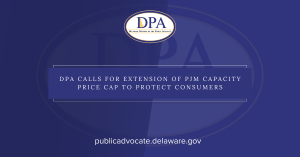
Senate Bill 230 addresses first recommendation of Behavioral Health Consortium’s Action Plan
WILMINGTON, Del. – Governor John Carney on Wednesday signed Senate Bill 230 beside members of the General Assembly, Lieutenant Governor Bethany Hall-Long and the Behavioral Health Consortium, and other mental health and addiction advocates.
“I am proud to sign this bill into law, a concrete step to assist Delawareans dealing every day with mental illness and drug and alcohol dependency,” said Governor John Carney. “This legislation recognizes that mental health and drug or alcohol dependency benefits should be treated the same as medical benefits. Thank you to Lieutenant Governor Bethany Hall-Long for her leadership on this issue with the Behavioral Health Consortium, and to all of the advocates who helped with this legislation.”
Senate Bill 230, also known as Mental Health Parity, is a critical step to eliminating coverage discrimination in Delaware and mandating certain reporting requirements that will allow the state to determine if health insurance carriers and Medicaid managed care organizations are applying treatment limitations which may prevent someone from accessing care for their addiction or mental illness. The legislation will help ensure compliance with the Mental Health Parity and Addiction Equity Act, passed by United States Congress in 2008, in order to ensure fair access to behavioral health treatment and making sure that those who need help can receive it.
“For far too long, people struggling with addiction and mental illness have not been treated fairly when it comes to getting the quality health care they need and deserve,” said Lt. Governor Hall-Long. “That ends now. This legislation is an important step to knocking down the barriers to treatment and eliminating stigma. I am thrilled we are enacting the first recommendation of the Behavioral Health Consortium’s Three Year Action Plan today.”
Lt. Governor Hall-Long, and members of the consortium, worked closely with former U.S. Representative Patrick Kennedy on this legislation.
“I applaud Governor Carney for signing Senate Bill 230, which represents a major step forward in ending coverage discrimination against those with mental health and addiction challenges in Delaware,” said Patrick Kennedy, Founder of the Kennedy Forum. “Make no mistake: This new law will save lives. By forcing health plans to submit proof of their compliance with parity laws, Senate Bill 230 shifts the burden back to insurance companies and away from families in crisis. I would particularly like to thank Lieutenant Governor Hall-Long, whom I worked closely with on this bill, for her outstanding leadership, as well as Representative Bentz, Senator Townsend, and Senator Henry for helping to expand access to treatment.”
Senate Bill 230 requires health insurance issuers to complete an initial analysis, and submit a report to the Department of Insurance and the Delaware Health Information Network.
“Mental health and substance abuse disorders are among the greatest public health challenges that our country and our state face,” said Senator Bryan Townsend, prime sponsor of Senate Bill 230. “It’s important for our entire health care system, from public policy to commercial insurance, to respond to that challenge by demonstrating that we value mental health just as much as physical health and that parity is a standard we take seriously in Delaware. I’m thankful to the Lt. Governor for her advocacy on this issue and to Gov. Carney for signing this bill into law.”
“The Behavioral Health Consortium gives us the opportunity to take a deep dive into Delaware’s challenges as they relate to behavioral and mental health. I thank Lt. Gov Hall-Long for her leadership on these issues,” said Representative David Bentz. “Senate Bill 230 was a collaborative effort that increases reporting of insurance coverage for mental and behavioral health in an effort to help us get a clear picture of the care in our state. Addiction is a disease – like cancer or heart disease – and we should be doing what we can to combat it and help those who struggle.”
Stakeholders, such as the Ability Network of Delaware and NAMI Delaware, were also heavily involved in the passage of this legislation.
“Ultimately, real parity breaks down the final barrier to stigma,” said Carolyn Petrak, Associate Executive Director of the Ability Network of Delaware. “When insurers cover mental health and substance use disorders in an unbiased measure and those seeking treatment need not weigh the cost maybe then, the barriers that stigma creates start to crumble.”
“Already there is significant stigma about mental health conditions. Only about half of the 1 in 5 Americans affected by mental illness seek treatment each year,” said Anne Slease, Director of Advocacy & Education for the National Alliance on Mental Illness (NAMI) in Delaware. “Overcoming the stigma is a big obstacle. Paying the bill shouldn’t have to be.”
Click HERE for photos from the bill signing.
###














































































